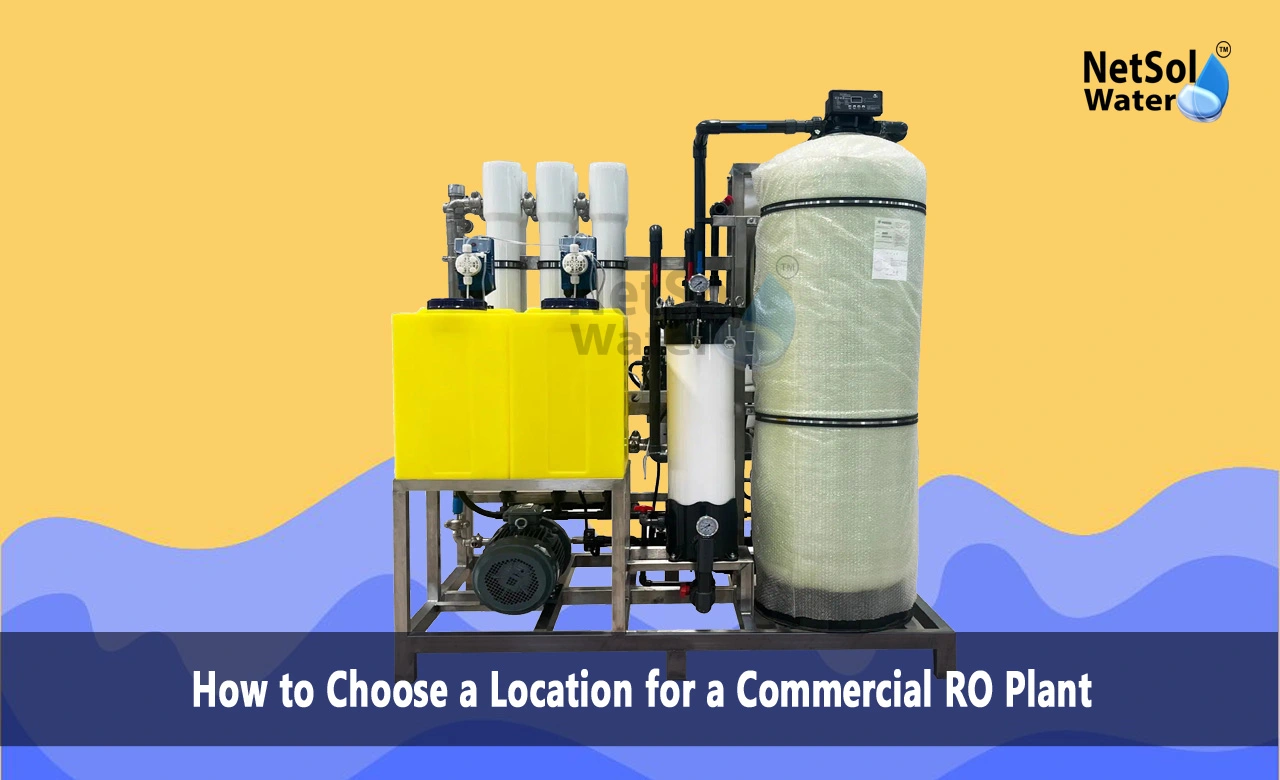How to Choose a Location for a Commercial RO Plant?
Establishing a commercial RO plant is a significant investment that requires careful planning and consideration of various factors. The location of your commercial RO plant plays a crucial role in determining its success, efficiency, and profitability. We will explore the key considerations for choosing the ideal location for your commercial RO plant, ensuring optimal performance and long-term sustainability.
Water Source Availability and Quality
One of the most critical factors in selecting a location for your commercial RO plant is the availability and quality of the water source. The plant's primary function is to purify and desalinate water, so it's essential to ensure an adequate and consistent supply of water. Consider the following aspects:
Proximity to a reliable water source: Whether it's a surface water body (river, lake, or reservoir) or a groundwater source (wells or aquifers), the proximity of your commercial RO plant to the water source is crucial. Closer proximity minimizes the costs associated with transportation and infrastructure.
Water quality: The quality of the source water directly impacts the efficiency and lifespan of your RO plant's membranes. Factors such as salinity, total dissolved solids (TDS), and the presence of contaminants like heavy metals or organic compounds should be evaluated. Higher water quality typically translates to lower pre-treatment requirements and reduced operational costs.
Water rights and regulations: Ensure that you have the necessary permits and legal rights to access and utilize the water source for your commercial RO plant. Familiarize yourself with local and regional water regulations to avoid potential legal issues or conflicts.
Infrastructure and Utility Considerations
The location of your commercial RO plant should also take into account the availability and accessibility of essential infrastructure and utilities. Consider the following factors:
Access to electricity: RO plants require a significant amount of electrical power to operate pumps, control systems, and other equipment. Proximity to reliable and cost-effective electricity sources is crucial for efficient operations.
Transportation infrastructure: The location should have easy access to transportation routes, such as roads, railways, or waterways, to facilitate the delivery of raw materials, equipment, and the distribution of the purified water produced by your commercial RO plant.
Disposal and discharge options: RO plants generate a substantial amount of concentrated brine or waste stream. The location should have access to proper disposal or discharge facilities, such as deep-well injection or proximity to the ocean or a large water body, to ensure environmentally responsible waste management.
Local Market and Distribution Considerations
The success of your commercial RO plant is heavily dependent on the demand for purified water in the local market and your ability to distribute the product effectively. Consider the following factors:
Proximity to target markets: Opt for locating your commercial RO plant near your target markets, like municipalities, industries, or agricultural areas in need of purified water. This strategy helps cut down transportation expenses and guarantees prompt delivery of your product.
Distribution infrastructure: Evaluate the existing distribution infrastructure, such as pipelines, tanker trucks, or bottling facilities, in the area. If necessary, factor in the costs of establishing new distribution channels or upgrading existing ones.
Competition and market demand: Conduct thorough market research to understand the local demand for purified water and the presence of competitors in the area. This information will help you make informed decisions about the plant's capacity and potential market share.
Environmental and Regulatory Considerations
The location of your commercial RO plant should comply with environmental regulations and minimize potential negative impacts on the surrounding ecosystem. Consider the following factors:
Environmental impact assessments: Perform thorough environmental impact assessments to pinpoint and address potential risks to the local ecosystem. This includes evaluating the discharge of concentrated brine, minimizing noise pollution, and mitigating any disruptions to natural habitats.
Zoning and land use regulations: Ensure that the chosen location is zoned for industrial or commercial use and complies with all relevant land use regulations. Obtain necessary permits and approvals from local authorities.
Environmental regulations: Familiarize yourself with local, regional, and national environmental regulations regarding water usage, discharge, and waste management. Ensure that your commercial RO plant meets or exceeds these standards.
Cost and Economic Considerations
While selecting a location for your commercial RO plant, it's crucial to consider the associated costs and economic factors. Evaluate the following aspects:
Land acquisition and development costs: Assess the costs of purchasing or leasing the land, as well as any necessary site preparation and development expenses.
Operational costs: Consider factors such as labor costs, utility rates, and transportation expenses, as these can vary significantly based on the location.
Incentives and tax benefits: Research potential incentives, tax breaks, or subsidies offered by local or regional governments for establishing a commercial RO plant in a particular area. These incentives can positively impact the overall project costs and profitability.
Conclusion
Choosing the best location for your commercial RO plant involves considering many factors. By carefully checking water availability and quality, accessibility to infrastructure, local market needs, following environmental rules, and thinking about costs, you can decide wisely. This helps your plant work well, make money, and last a long time.
It's crucial to recognize that the location of your commercial RO plant is a pivotal investment with profound implications for your business's performance and longevity. Dedicate ample time to thorough research, seek expert advice, and carefully evaluate all factors to ensure the selection of the most suitable site for your commercial RO plant.
Do you need an advice or assistance on selecting the best water and waste water treatment unit? We have solutions for all your problems!
Let us know your problem, our experts will make sure that it goes away.
For an assistance or related query,
Call on +91-965-060-8473 Or write us at enquiry@netsolwater.com



